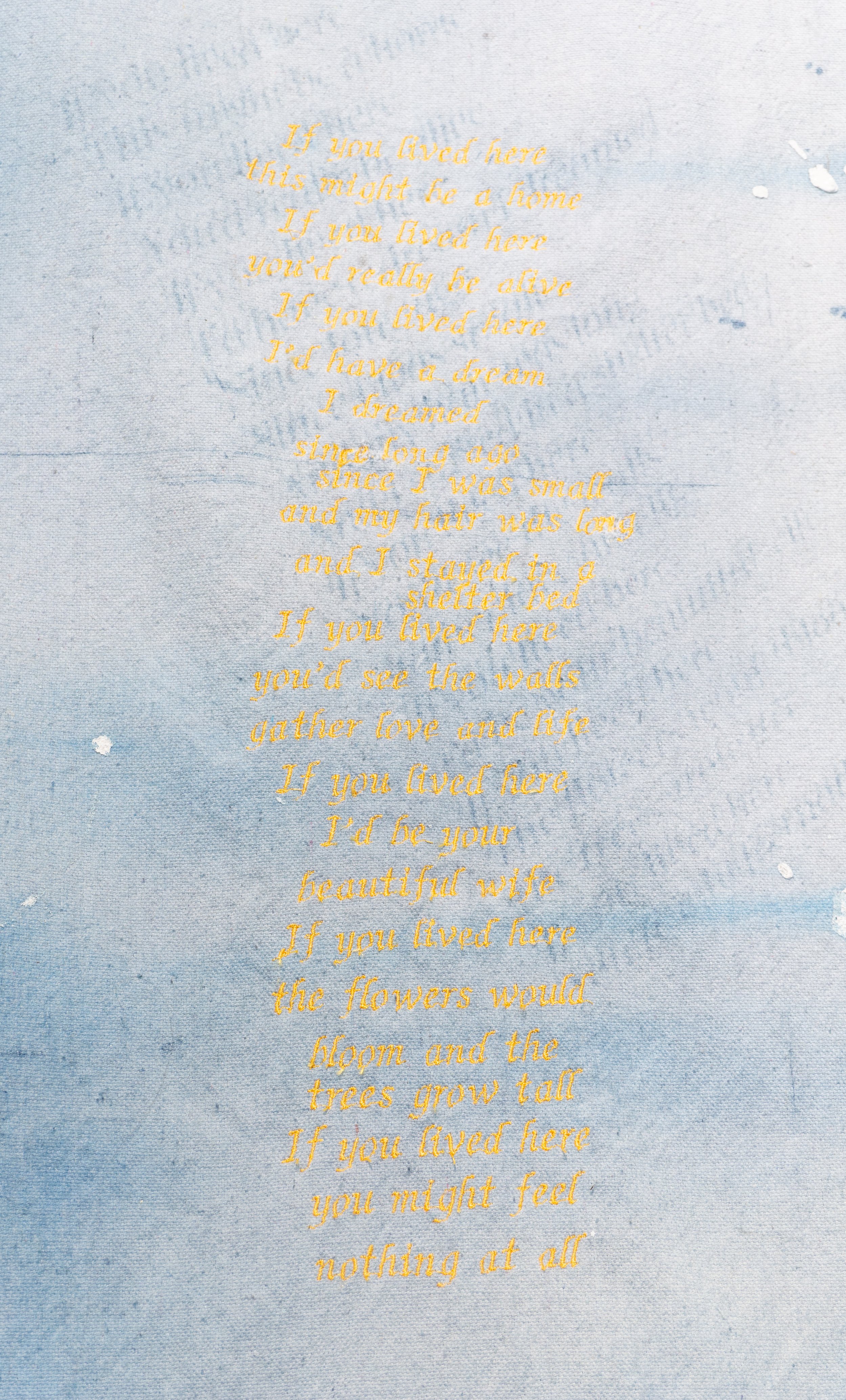Jacqueline Saragoza McGilvray: My body is a temple, my body is a ruin
September 1–October 13, 2023
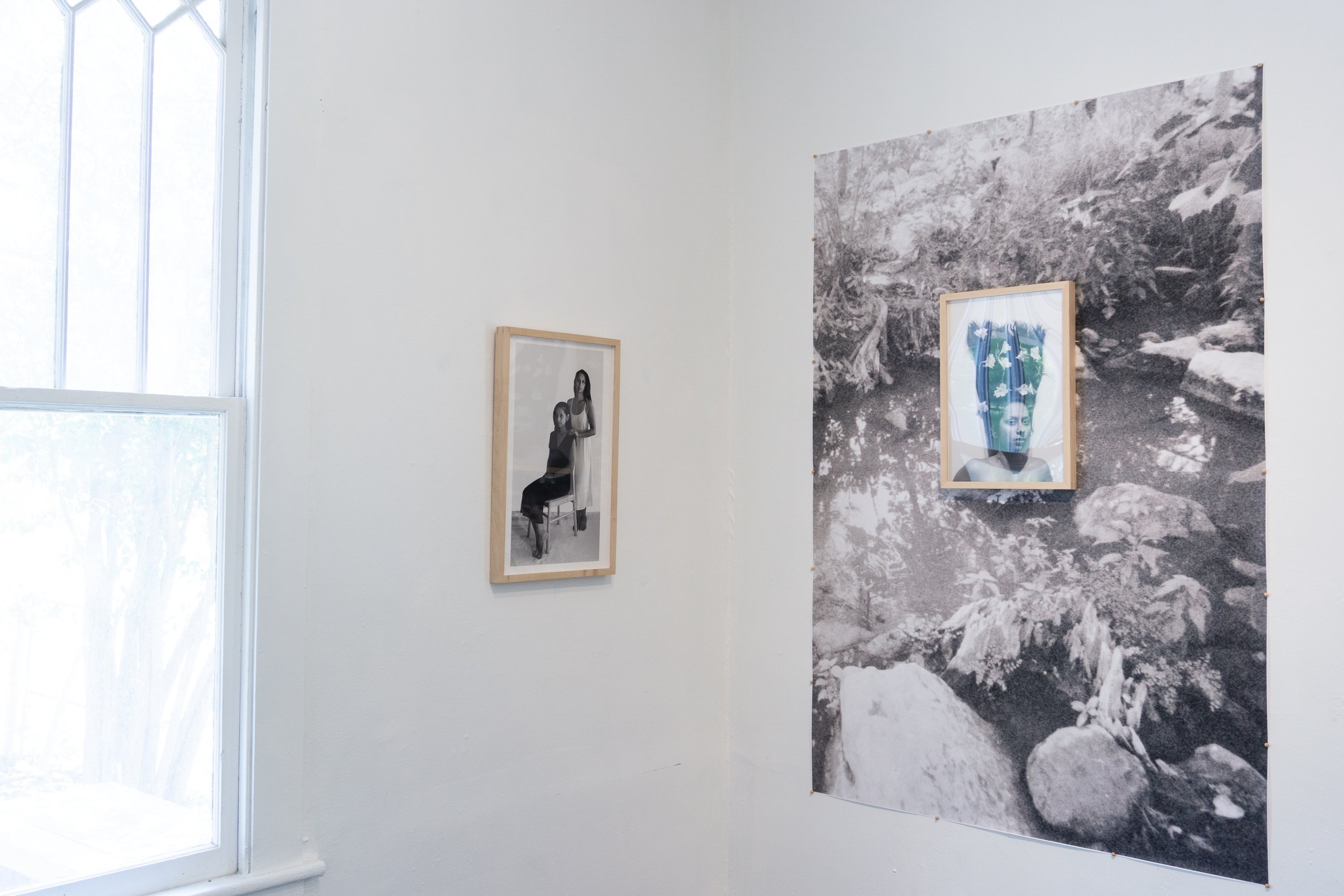
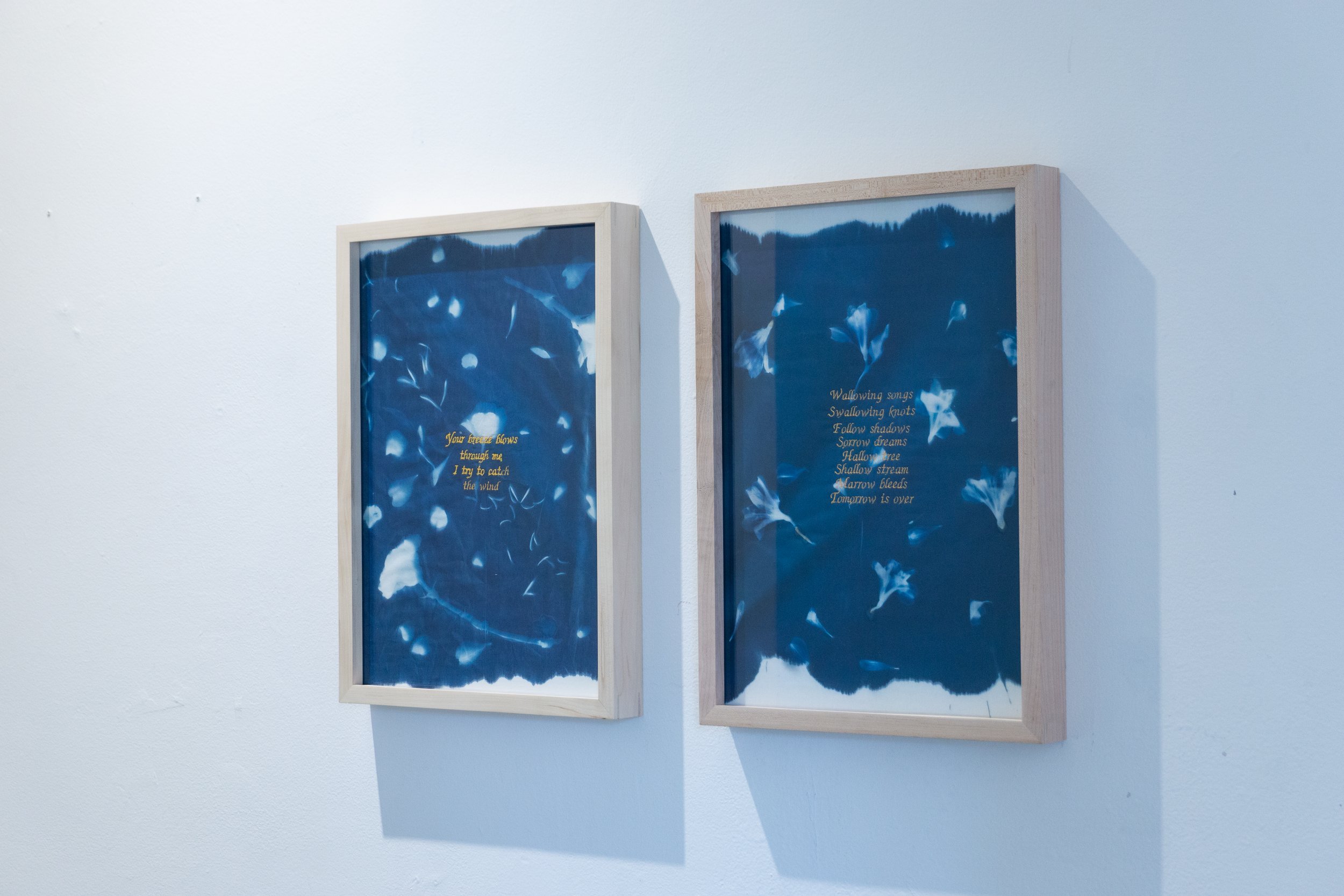
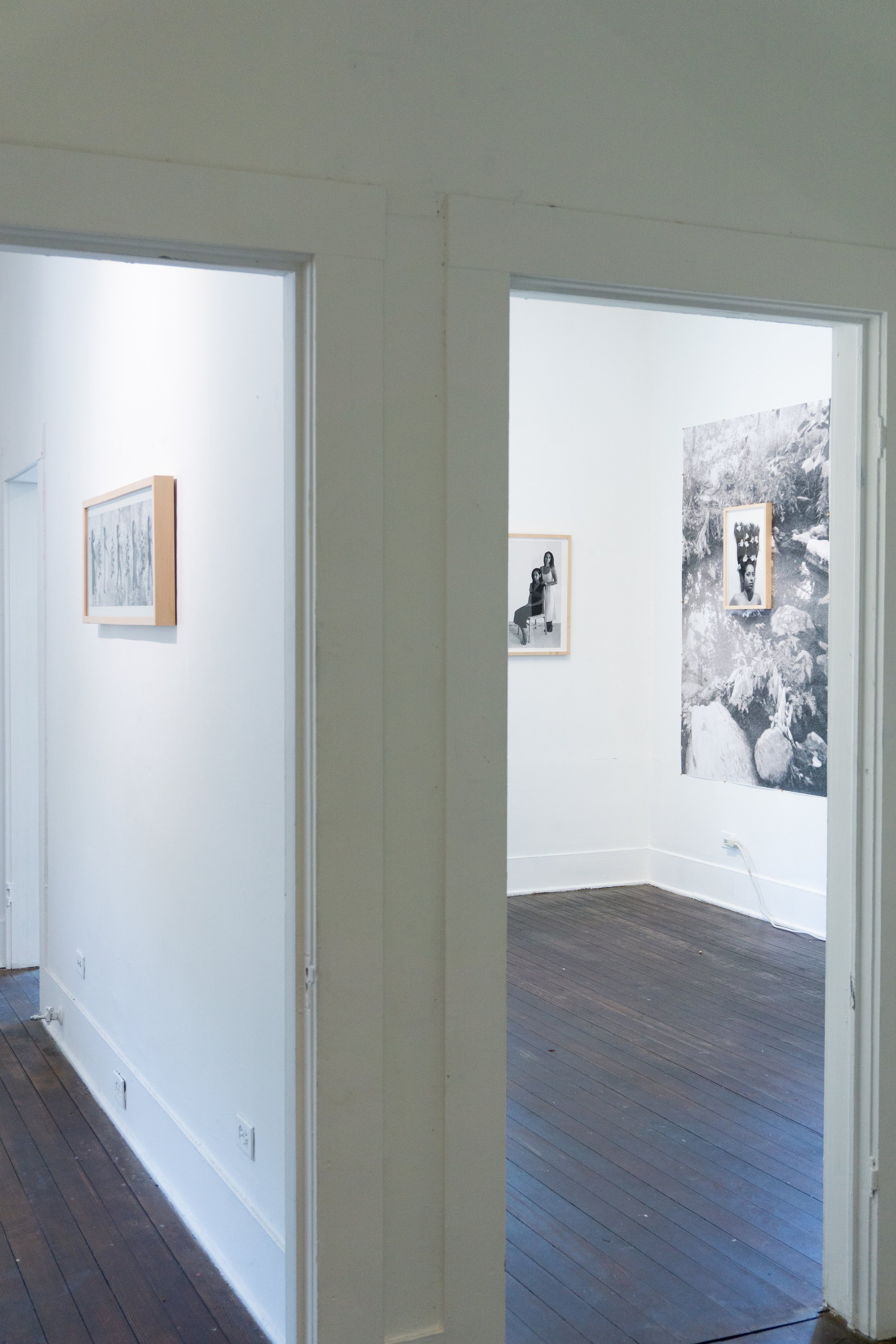
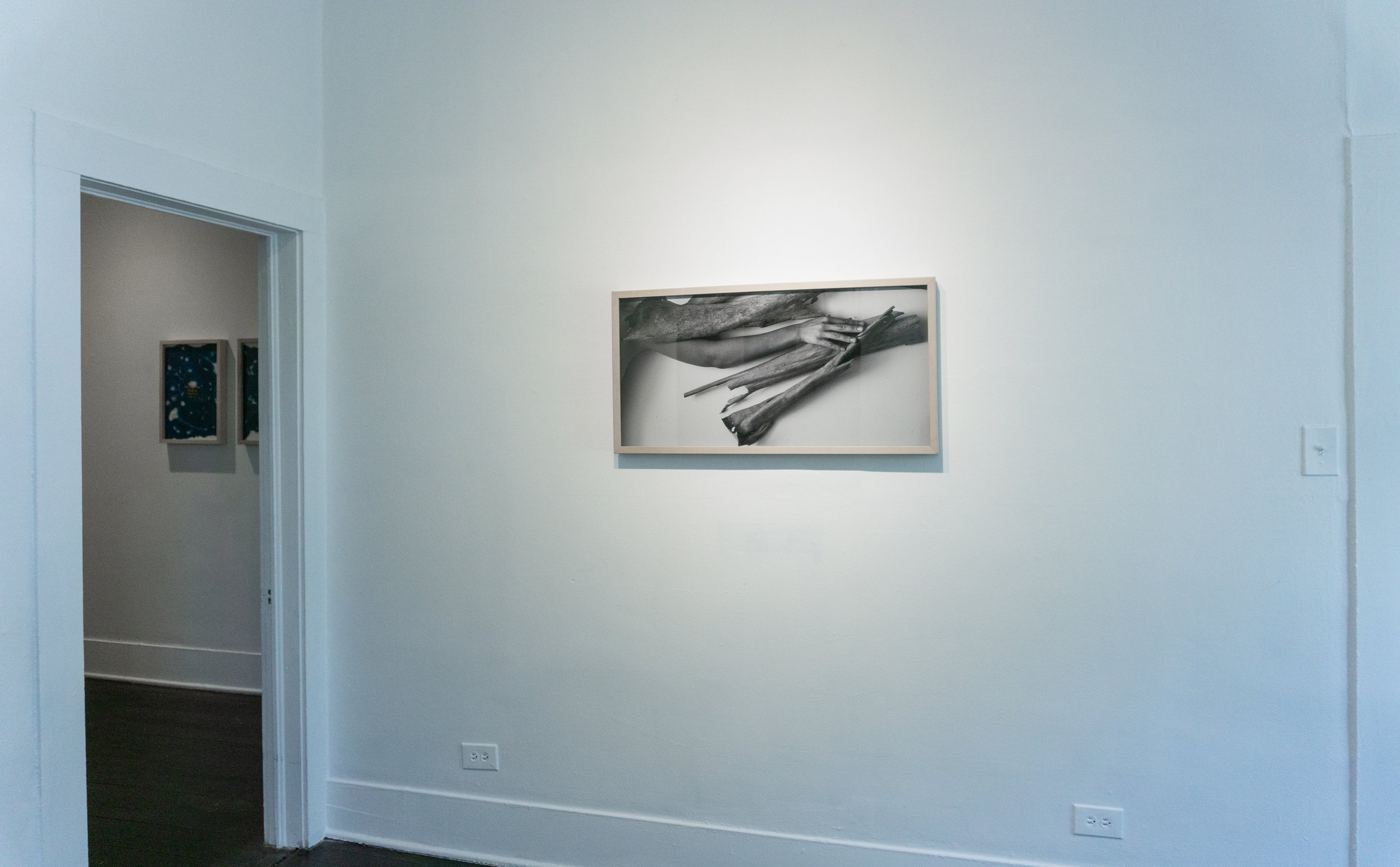
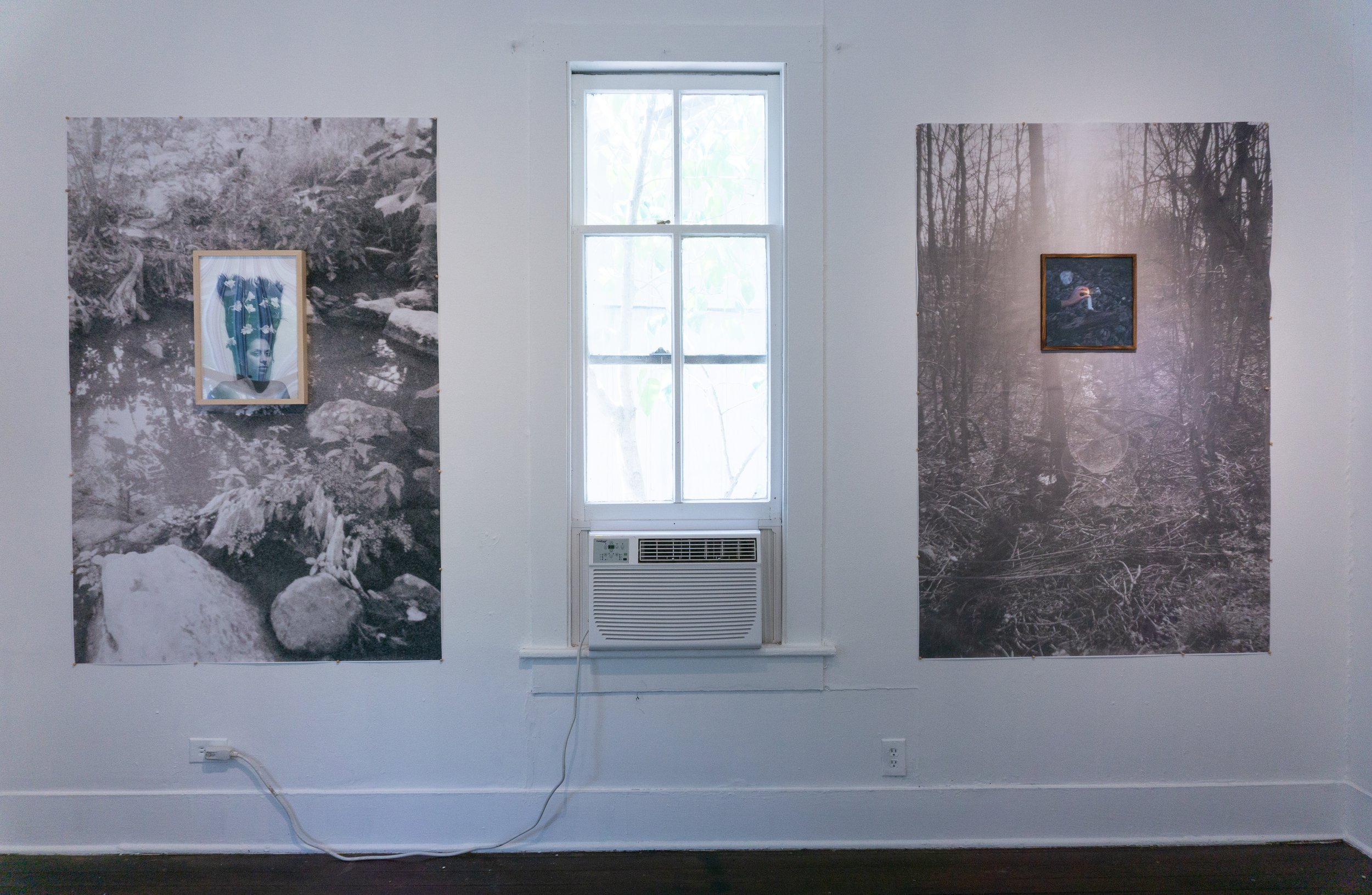
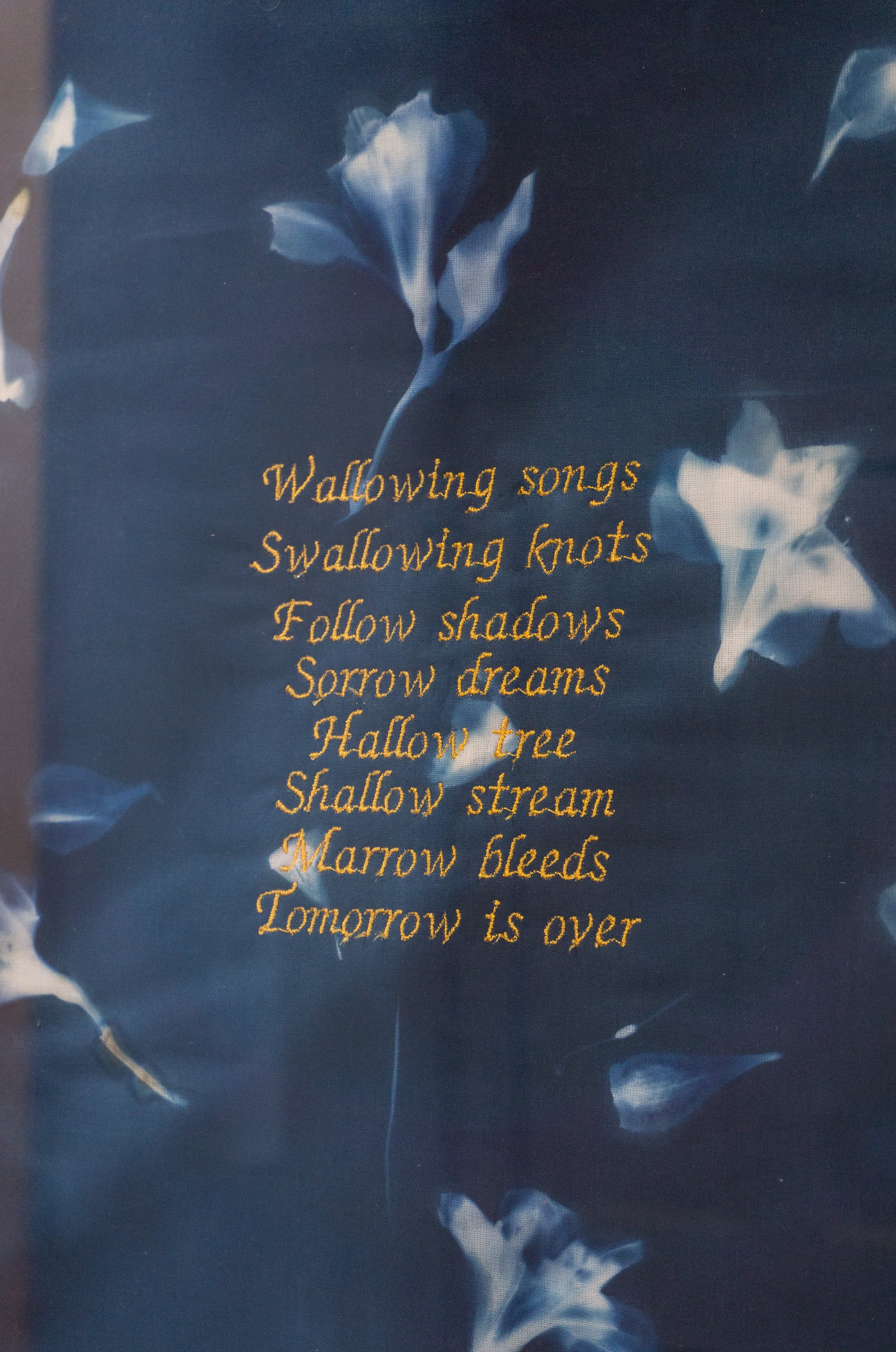
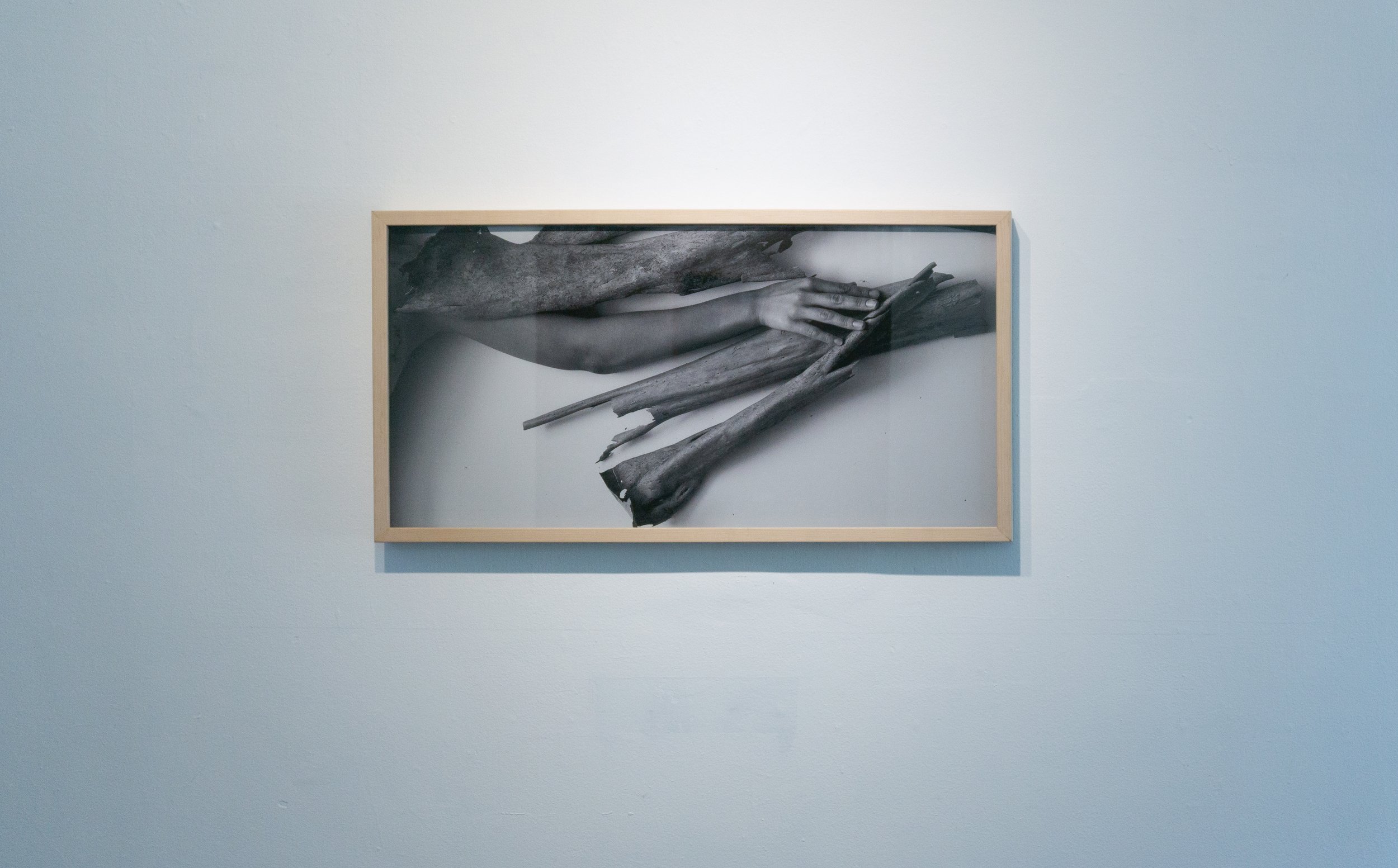
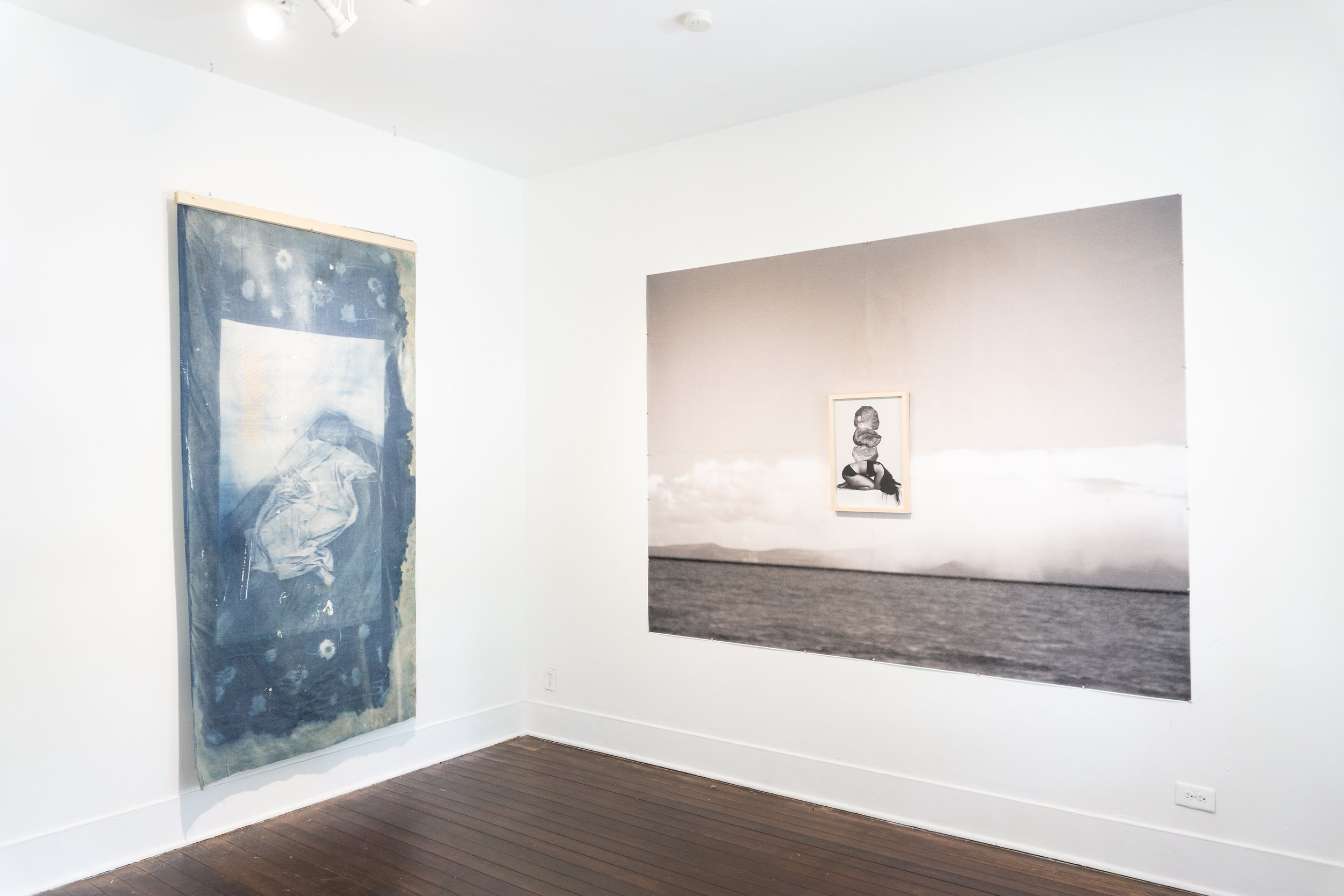
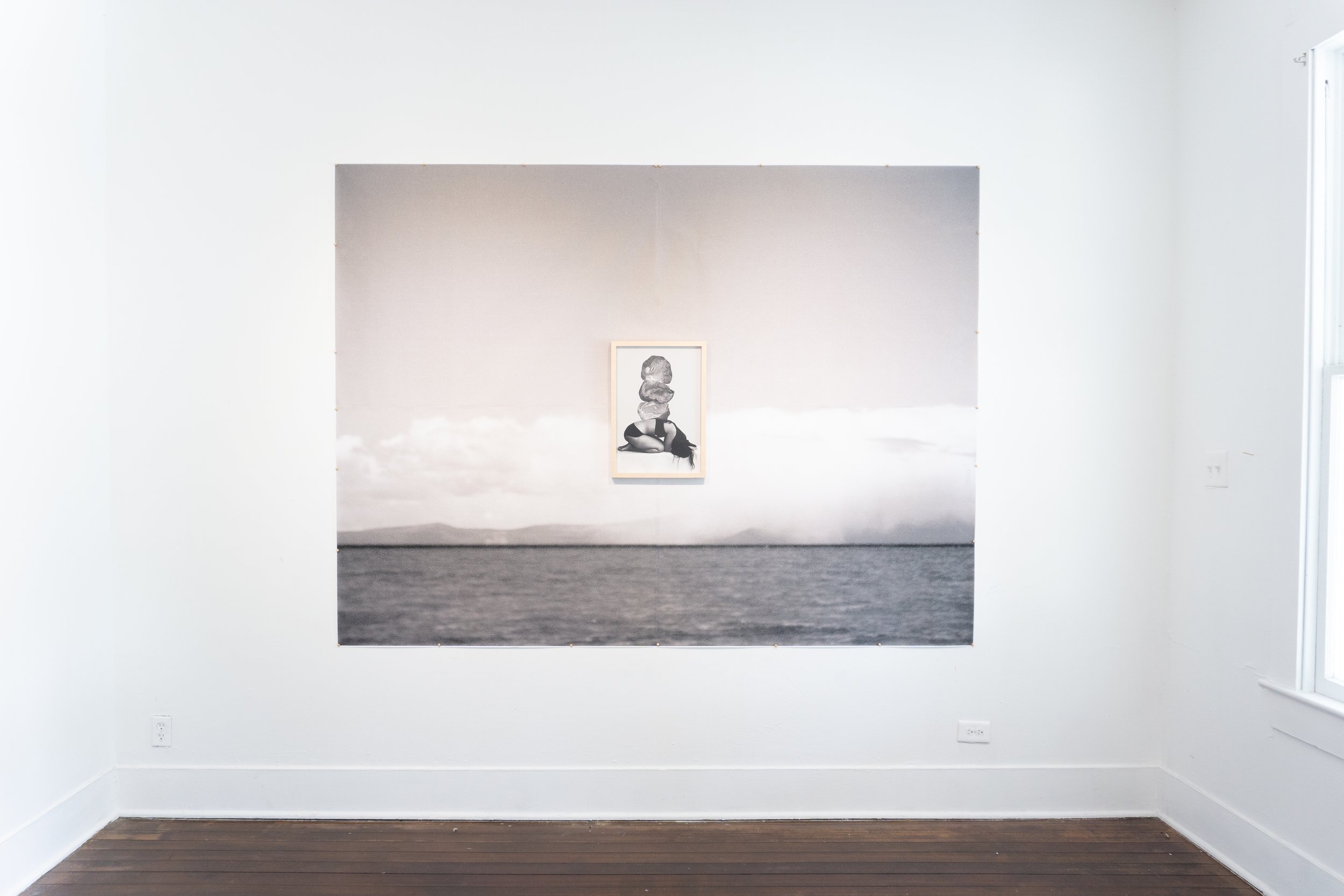
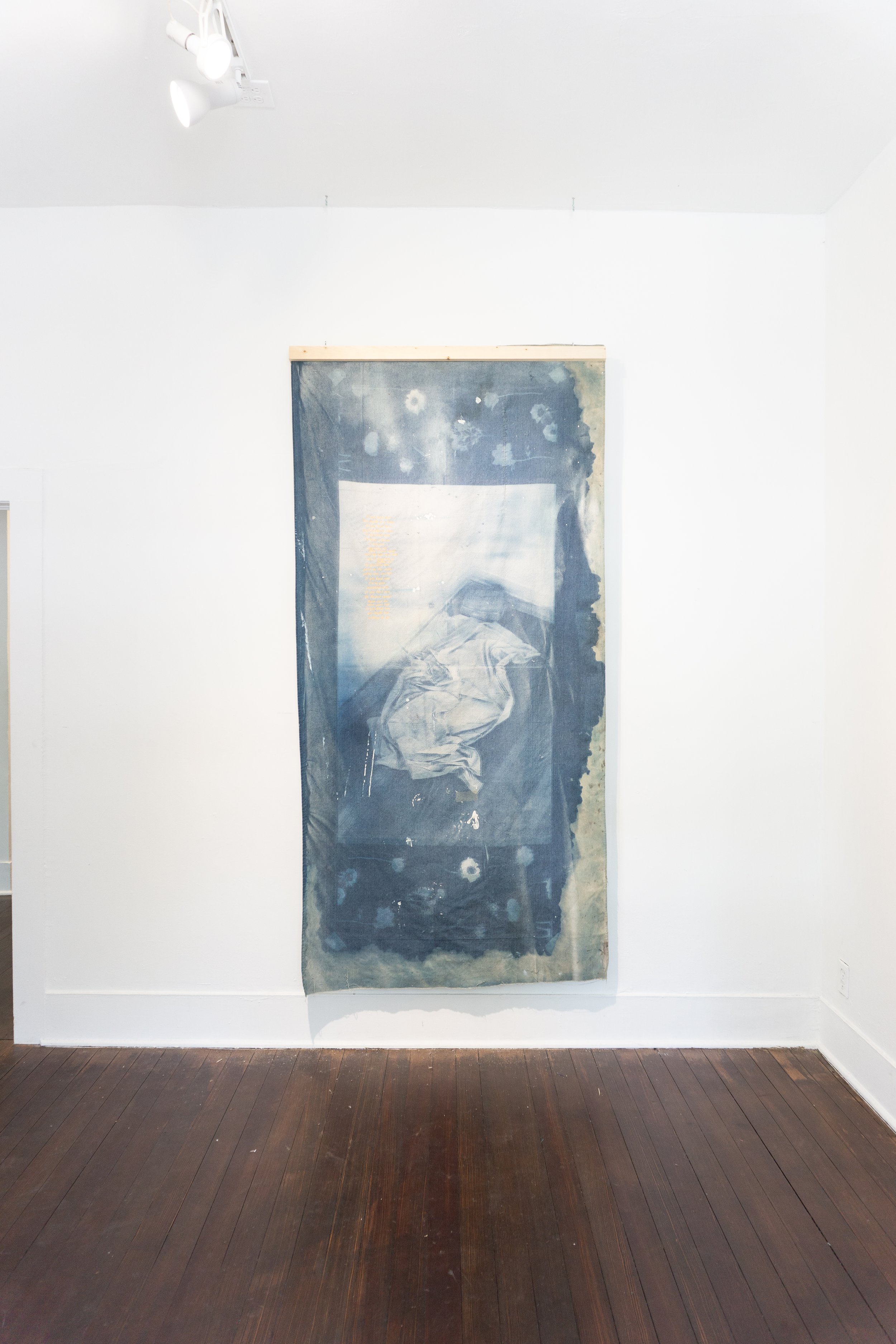
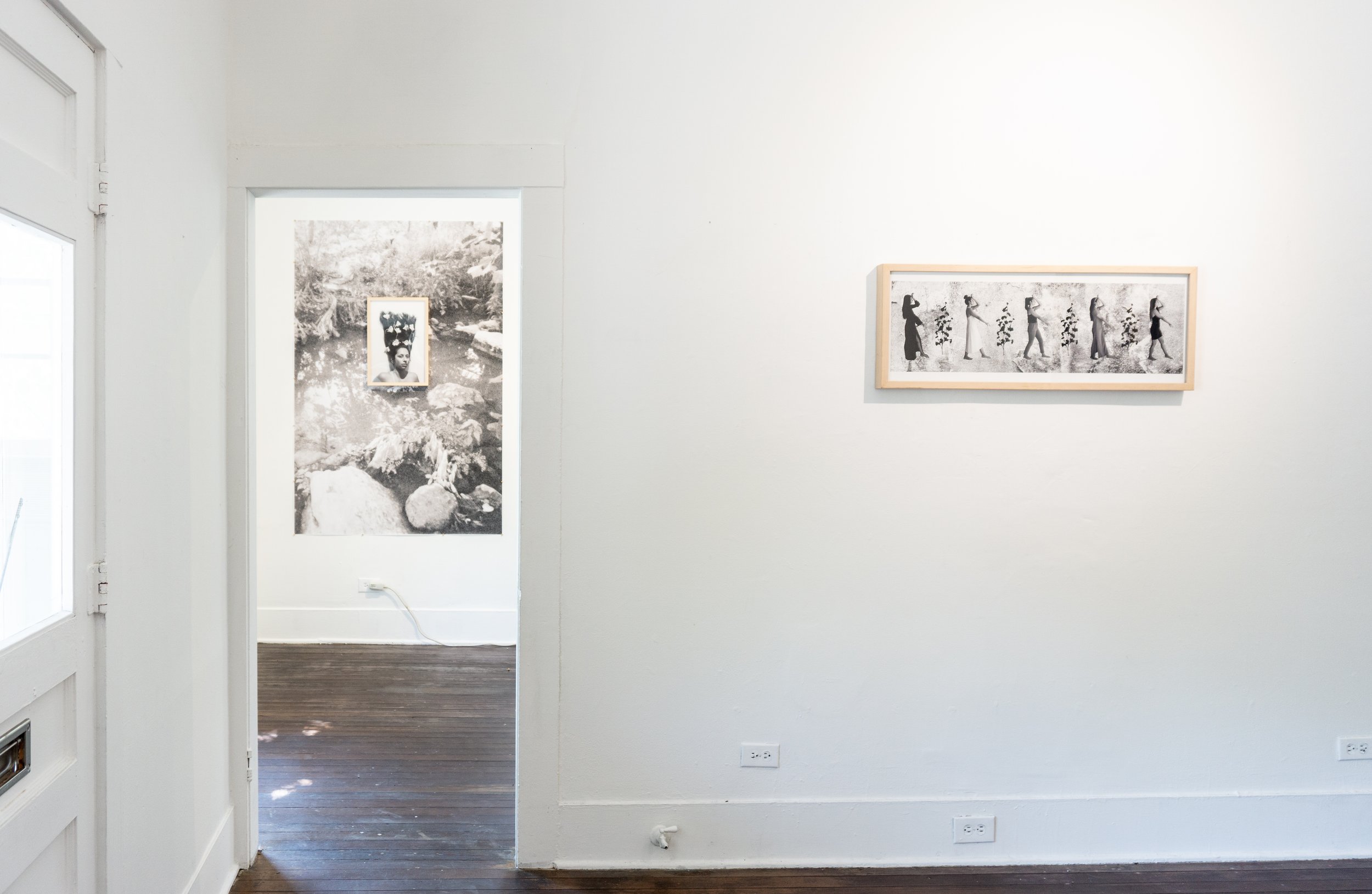
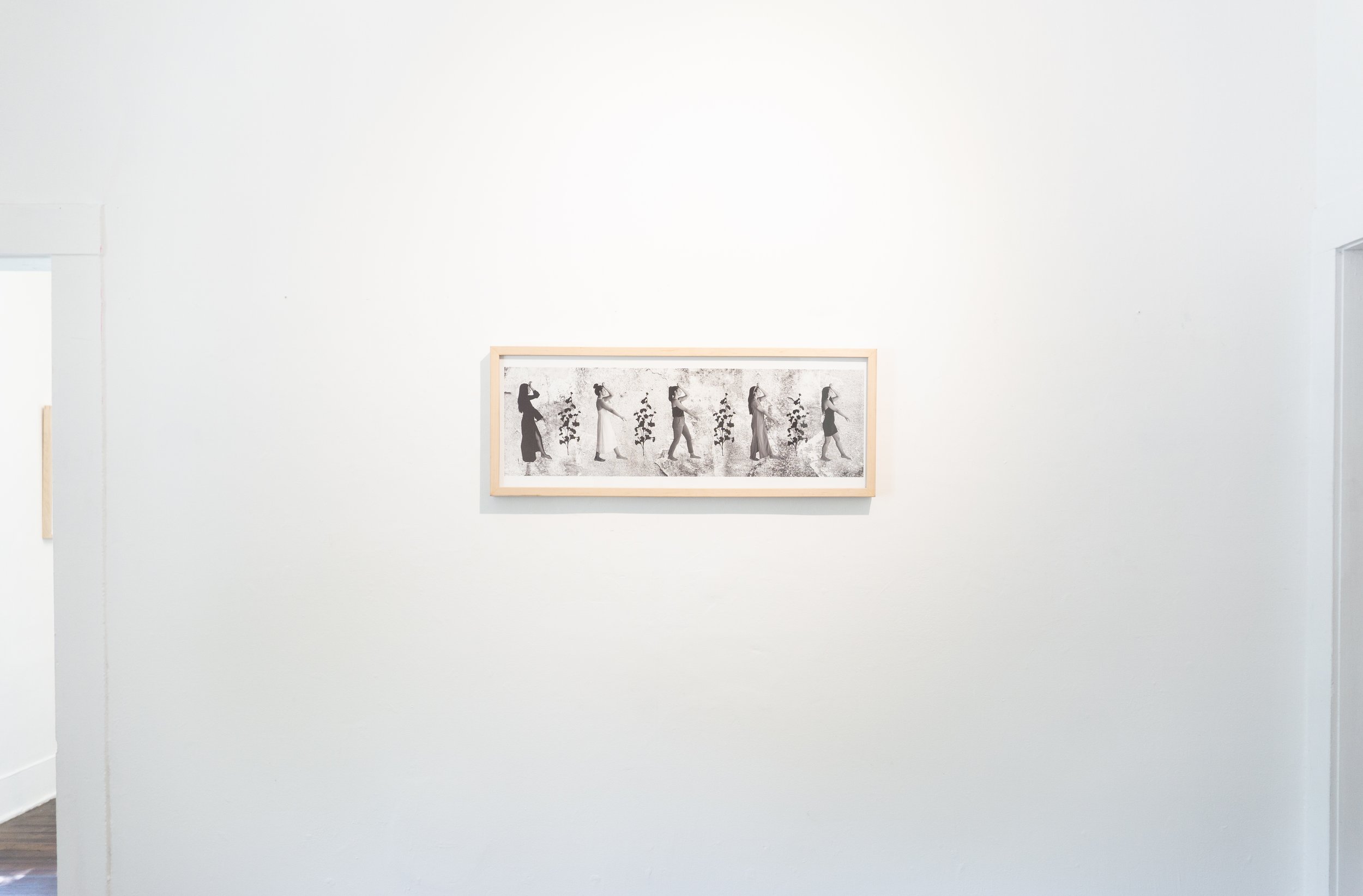
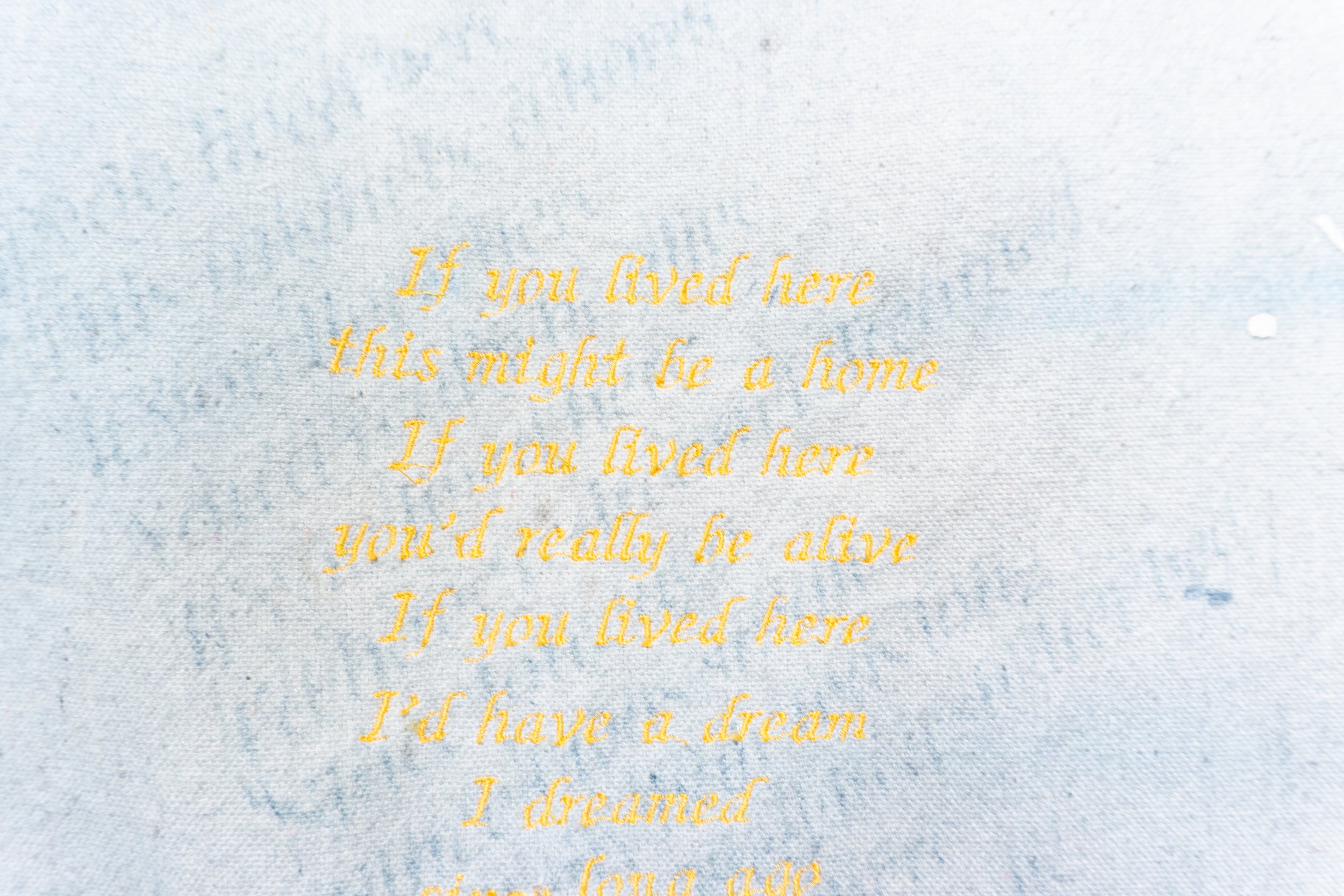
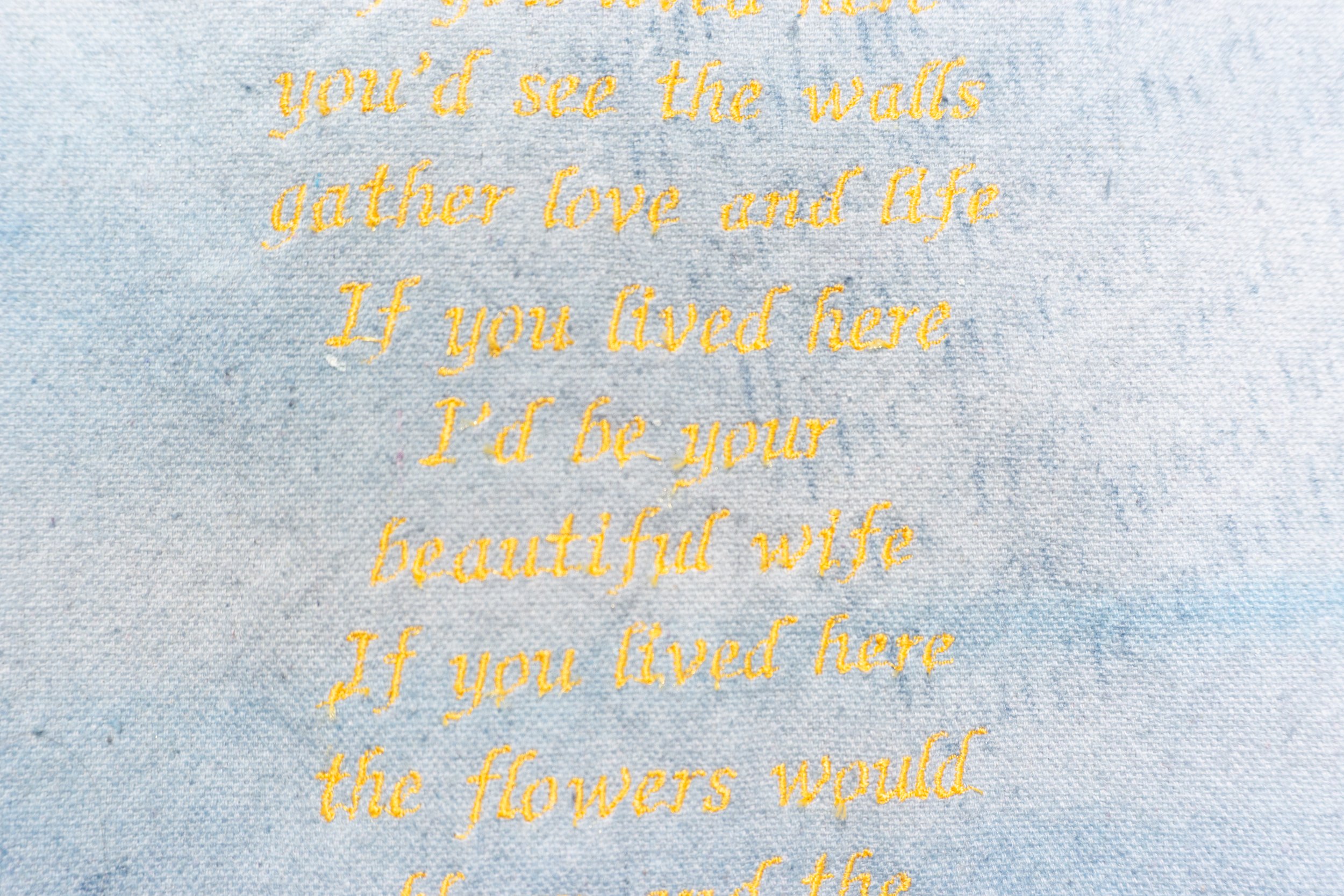
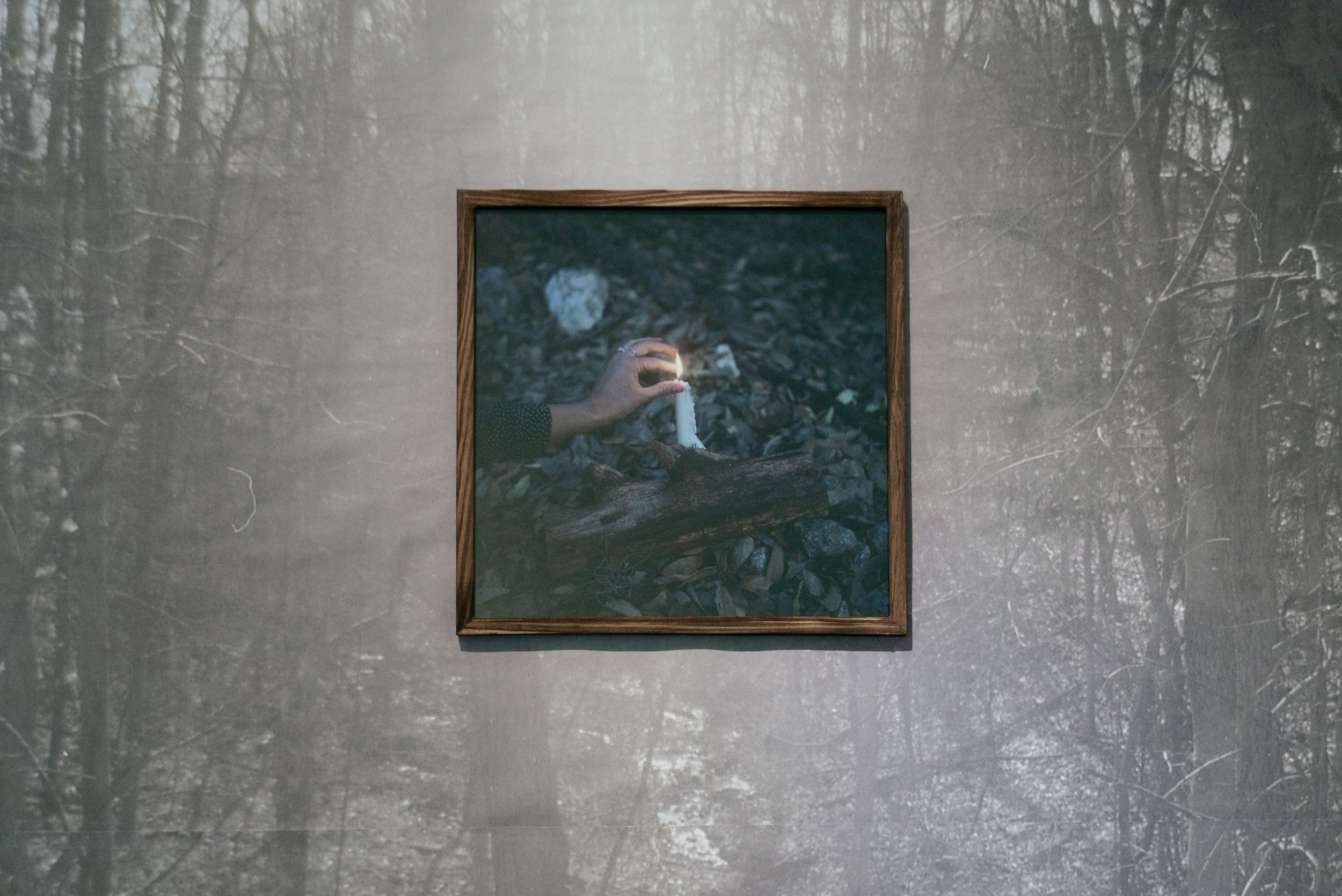
My body is a temple, my body is a ruin explores themes of transformation, loss, love, devotion, support, and grief. It considers out of body experiences and finding paths to be present again with oneself following destabilization.
This body of work poses a binary comprised of the temple and the ruin. The temple represents sacred space– a place one can engage the spiritual, acts of worship, experience catharsis, experience the divine, and community. In contrast, the ruin represents isolation, disintegration, and collapse–something forgotten or abandoned. A ruin is both a place (noun) and a verb–a choice or action made towards something.
The self-portraits depict the character/figure in multiple emotional states. The two main rooms of the exhibition are divided thematically. Depicted in the room on the right, where the viewer enters the gallery, are states of loss and grief. The room on the left focuses on revelation and being on the precipice of transformation.
The flora motifs in some of the work function as metaphoric representations, acknowledging feelings and events. The background landscapes are meant to be expansive spaces to visit, to release and reflect, just as nature is for me in my own life. The landscapes also reflect the themes of the rooms; one slightly out of focus seascape–adrift, loss, uncertainty; the forest spaces–those of growth, transformation, restoration, and being grounded.
In the making of this work, a revealing question surfaced for me. Does grief need a witness? I think for many, it does. In this work I’ve utilized poetry and self-portraiture as a method for being my own witness and my own catalyst for transformation.
ABOUT THE ARTIST
Jacqueline Saragoza McGilvray is an artist and curator living in San Antonio, Texas who grew up in the Central Valley of California. McGilvray earned an MFA in Photography and Integrated Media from Ohio University and BFA from Texas State University in Photography. Since 2014 she has curated exhibitions and special projects for Contemporary at Blue Star in San Antonio, TX. Prior to working at the Contemporary, McGilvray did collections research and writing for the Linda Pace Foundation, taught photography courses for the Art Institute, San Antonio, and Ohio University, coordinated exhibitions, and worked in multiple art education programs.
McGilvray’s photographic practice is focused on exploring how identity develops and shifts through family, home, place, and culture. Her work is influenced by the history of photography and interests in the nuances of language, gesture, and the body. McGilvray’s work has been exhibited at various galleries including with Minneapolis Photo Center; Houston Center for Photography; Fotofest, Houston, TX; Clifton Cultural Arts Center, Cincinnati, OH; Co Lab, Austin, TX; ROY G BIV, Columbus, OH; The McNay, San Antonio, TX; St. Edward’s University, Austin, TX and more. Her work has been reviewed or featured in publications including Glasstire, San Antonio Express News, Texas Monthly and more.
McGilvray’s curatorial practice is centered on a collaborative,service-minded approach, committed to diversity in many forms and methods and centering artists’ visions. She is drawn to work exploring personal passions and histories that can offer shared truths, and artists who invest in their craft, demonstrating artistic excellence and material expertise in balance with conceptual rigor. McGilvray feels this is key to inspiring a range of viewers, from professional artist to students to everyday visitors. McGilvray works collaboratively with artists and her exhibitions team to minimize the impacts of producing exhibitions, as well seek to work with artists whose practices consider place, environmental impact, and preservation. McGilvray’s curatorial projects have been featured and reviewed widely including in Artforum, Hyperallergic, Juxtapoz, Scultpture Magazine, Glasstire, Sightlines, Texas Arts and Culture, Rivard Report, La Prensa, and more. Her curatorial perspective is informed by studies focused on methods of art history centered on linguistics with some of her specific fields of interest including the history of photography, contemporary art, archives and books as artwork, and various feminist movements and ideologies.
